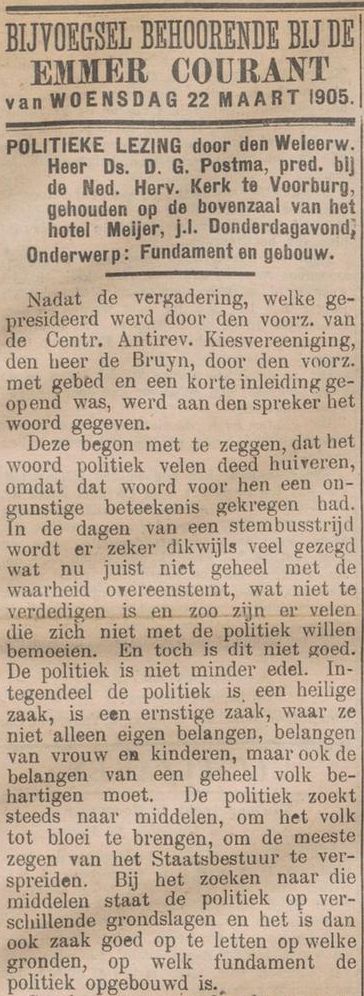Djurre Gosses Postma
Djurre Gosses Postma
Bortha Anna Talma
Bortha Anna Talma
1862
Birth
29 Sep 1862
Kollum
29 Sep 1862
Kollum


Leeuwarder courant, 03 Oct 1862
187x-1877
Primary
School
School

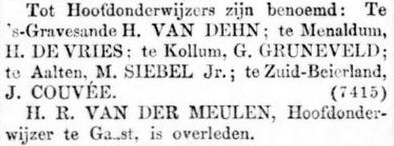
De standaard, 15 Oct 1874
Djurre attended the Christian school in Kollum.
He was taught by teacher G. Gruneveld.
He was taught by teacher G. Gruneveld.
1877-1884
Gymnasium

Population Register Kollum Postma family
2 Sep 1877 Doetinchem Boarding school- High School - Gymnasium / Latin school
Djurre failed his university entrance exam in Doetinchem and
then successfully completed gymnasium in Assen.

In 1868 the beautiful country house was bought by Reverend Van Dijk. The building was set up as a boarding school for gifted students of the Latin School.
Villa Ruimzicht is a monumental building just outside the center of Doetinchem. After a major renovation, the former boarding school has been transformed into a luxury four-star hotel.
Hotel Villa Ruimzicht
Ruimzichtlaan 15
7001KG Doetinchem
Villa Ruimzicht is a monumental building just outside the center of Doetinchem. After a major renovation, the former boarding school has been transformed into a luxury four-star hotel.
Hotel Villa Ruimzicht
Ruimzichtlaan 15
7001KG Doetinchem


Population Register Assen Djurre Postma
19 Oct 1881 from Doetinchem to Assen
12 Sep 1884 from Assen to Groningen
After gymnasium he went to study theology in Groningen.
Meanwhile his parents also lived in Groningen.
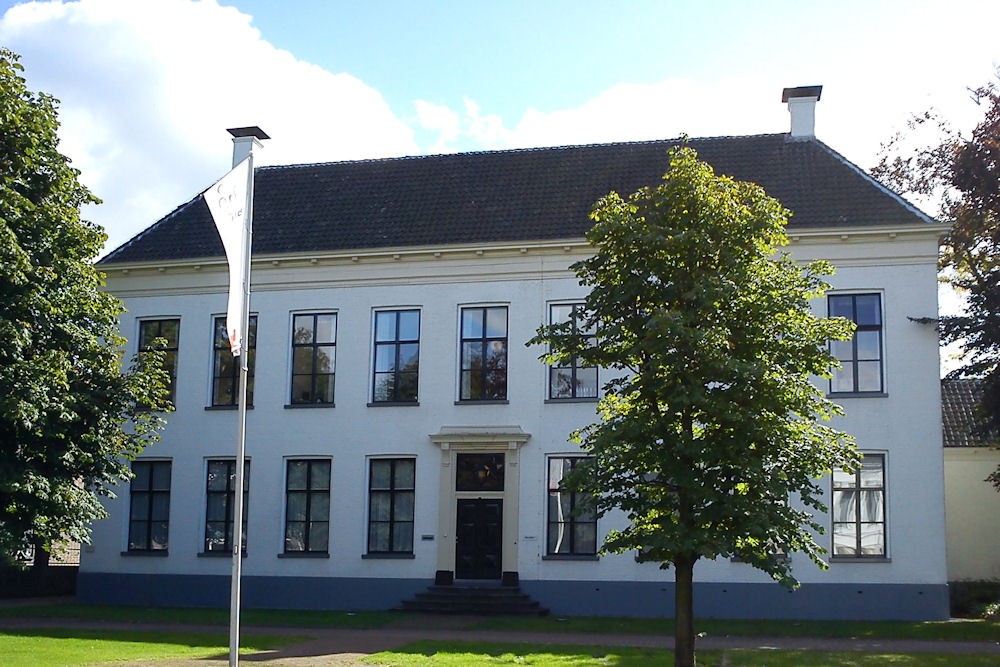
Hendrik Jan Nassau was the first headmaster of the French boys school that was founded in 1820.
In 1825 a new school building was moved to the current Dr. Nassaulaan. It became a combination of a French and a Latin school. The rector lived internally.
In 1852 the school became a Gymnasium.
It is now in use as an office building. The building is a recognized national monument.
Dr. Nassaulaan 5, 9401 HJ Assen
In 1825 a new school building was moved to the current Dr. Nassaulaan. It became a combination of a French and a Latin school. The rector lived internally.
In 1852 the school became a Gymnasium.
It is now in use as an office building. The building is a recognized national monument.
Dr. Nassaulaan 5, 9401 HJ Assen
1884
Passed
Gymnasium
Gymnasium


Nederlandsche staatscourant, 30 Jul 1884
1890
Marriage
23 Apr 1890
Groningen
23 Apr 1890
Groningen
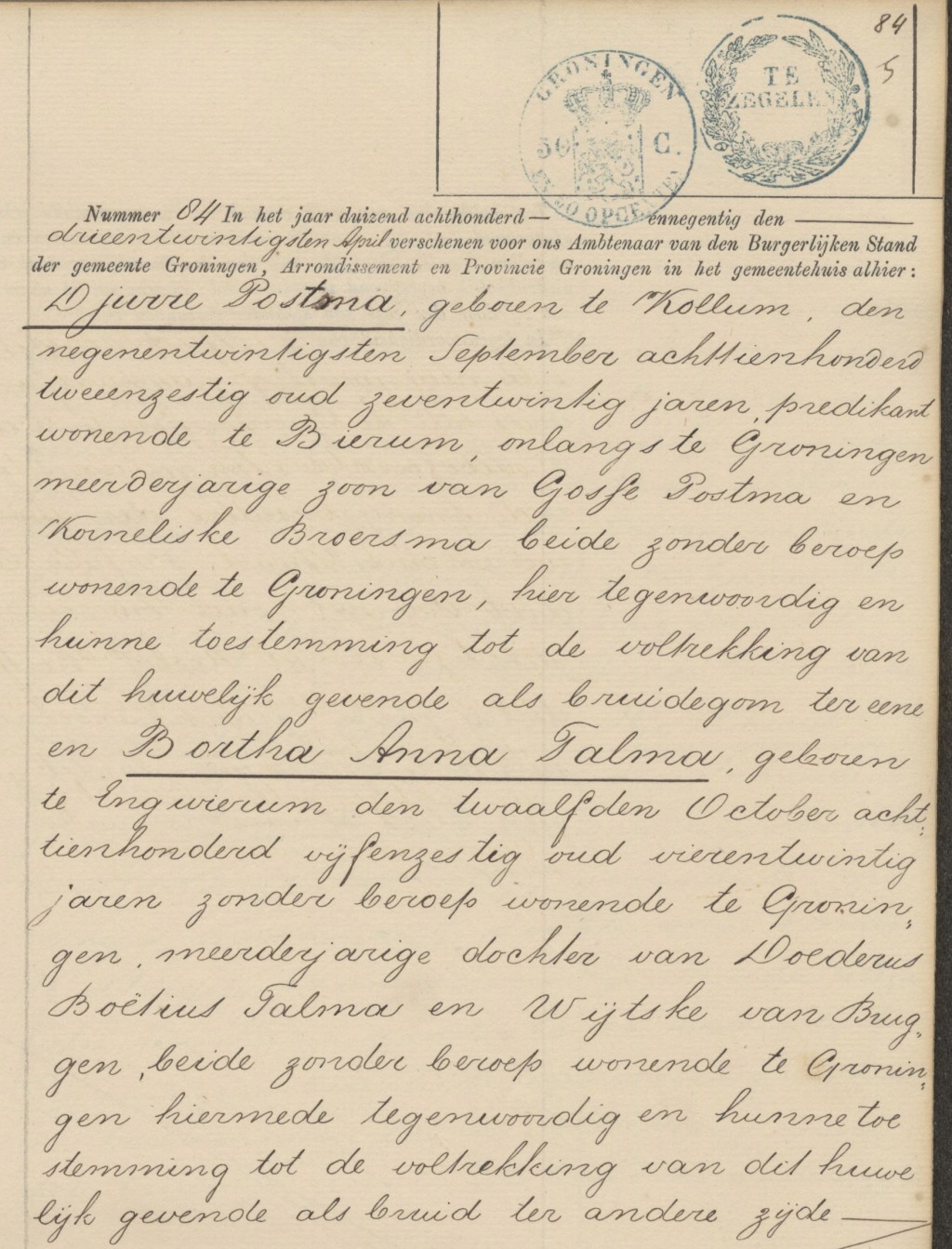
 Getuigen waren
Getuigen waren- Albert Wietzes van Bruggen, 49 jaar, Graanhandelaar, Groningen,oom der echtgenoot
- Nicolaas Eisenga, 46 jaar, Burgemeester Bierum, Bierum
- Jan Hendrik Fredrik Gangel, 54 jaar, instituteur (onderwijzer lagere school), Groningen
- Roelof Korter, 31 jaar, Graanhandelaar, Groningen
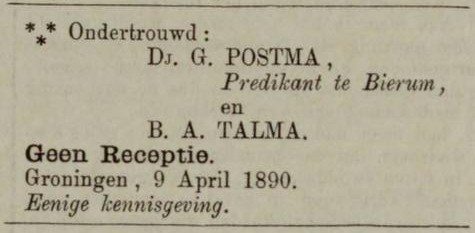
Leeuwarder courant, 12 Apr 1890
1893-1897
Zaandam
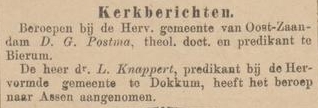
Oprechte Haarlemsche Courant
19 Jan 1893
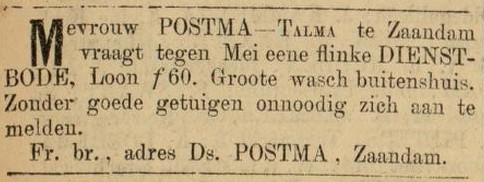
Leeuwarder courant
08 jan 1894
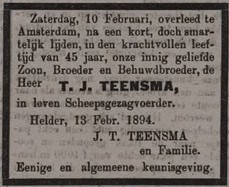
Vliegend blaadje - nieuws- en advertentiebode voor Den Helder, 14 Feb 1894
During the Zaandam period the father of the future foster child Geert Teensma died. He lived in Zaandam and died in a hospital in Amsterdam

Hoornsche courant
28 Apr 1895

Alkmaarsche Courant
29 Jan 1897
1895
Death Penalty
Nov 1895
Nov 1895
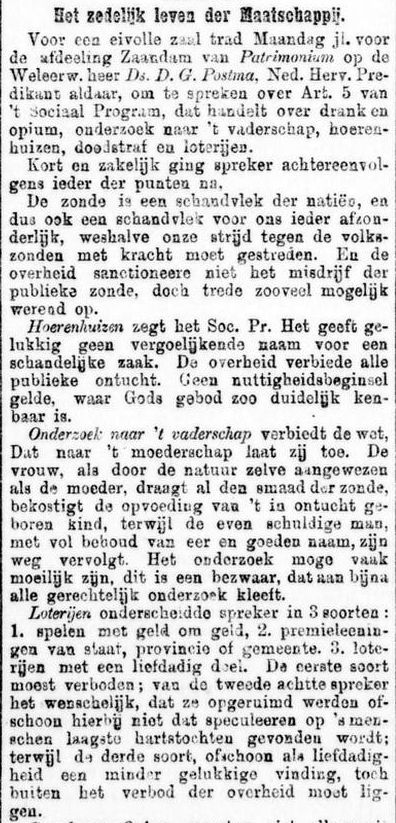

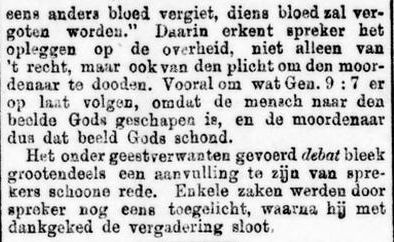
De standaard, 21 Nov 1895
Facts & Figures
Death Penalty
The Netherlands
Death Penalty
The Netherlands
The last person to pay for his crime with death in peacetime in the Netherlands is Johannes Nathan. He was hanged on 31 October 1860 on the Markt in Maastricht because he had murdered his mother-in-law.
With the Law of September 17, 1870 the death penalty was officially forbidden. Only in military criminal law the death penalty was still possible.
After the Second World War, 152 death sentences were imposed on war criminals through a special procedure, 39 of which were also carried out.
With the constitutional amendment of 1983, the death penalty in the Netherlands is prohibited by law in all cases.
1898-1901
Zaandam
Voorburg
Voorburg
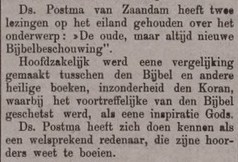
Vliegend blaadje
nieuws- en advertentiebode voor Den Helder, 25 May 1898

Delftsche courant
06 Apr 1899
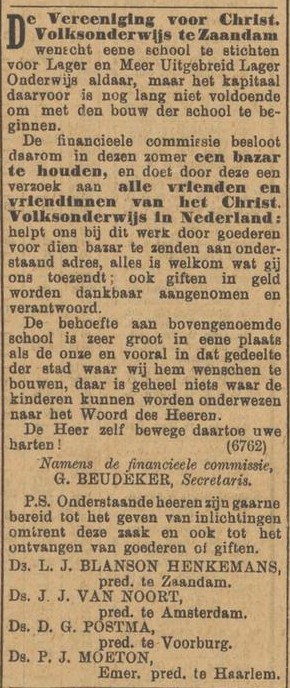
Het Nederlandsche dagblad
15 May 1901
D.G. Postma remained involved with the city Zaandam
1905
Elections
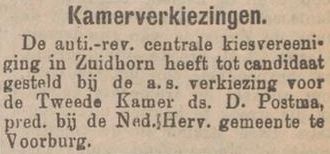
De avondpost, 24 Oct 1904

De standaard, 20 Feb 1905
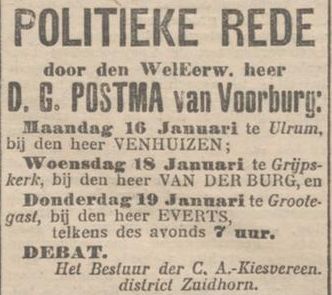
Nieuwsblad van het Noorden
15 Jan 1905
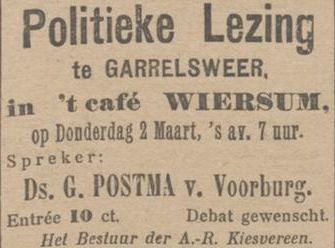
Nieuwsblad van het Noorden
26 Feb 1905

De standaard, 22 Apr 1905
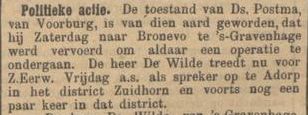
De standaard, 27 Apr 1905

Het vaderland, 01 May 1905

De courant, 08 May 1905

De avondpost, 25 May 1905



Land en volk, 17 Jun 1905
First round - winner with 3197 votes



De nieuwe courant, 29 Jun 1905
Second round - lost with 3323 votes

Nieuwsblad van Friesland, 29 Jun 1905
District Zuidhoorn
D.G. Postma ran for election for the House of Representatives (Tweede Kamer) in 1905.
In the second round he lost. D.G. Postma was unable to continue his campaign to the end due to illness.
In the nineteenth century the Netherlands was still divided into separate electoral districts.
The precise division of the districts has changed several times over the years.
In 1905 the Netherlands was divided into 100 electoral districts. In each district one member was elected to the House of Representatives. An absolute majority was required to be elected as a candidate. Sometimes an absolute majority was not obtained in the first round of elections. In that case, a second round of elections was held between the two candidates who received the most votes in the first round. Since the elections of 1918, the House of Representatives has been composed on the basis of proportional representation.
1909-1913
Huiselijk Geluk
Voorburg
Voorburg

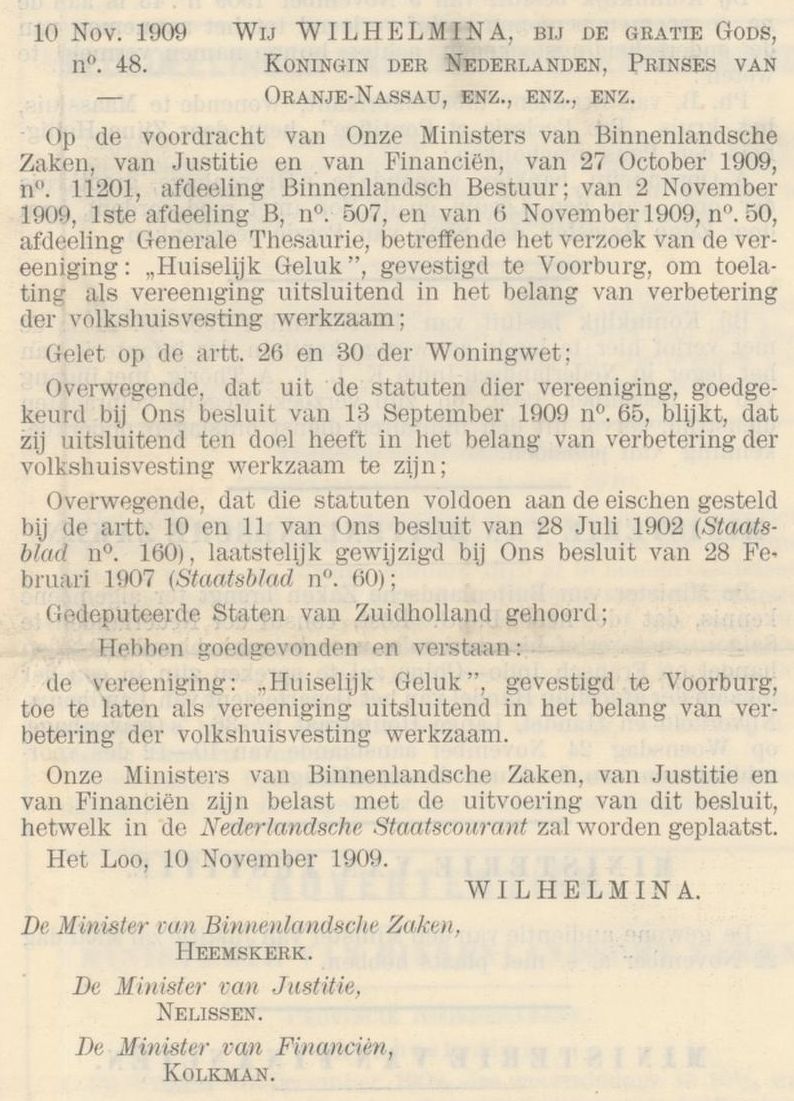
In 1912, the association “huiselijk geluk" built 12 houses for the people. The location is Oranjelust 45-47, Voorburg.
The construction of the houses was partly on the initiative of C.F.J. Blooker and D.G. Postma. D.G. Postma was also chairman of the association.
Due to industrialization there was a great migration to the city and there was a major housing shortage. This changed with the introduction of the Housing Act of 1901. The government started to provide financial support and set requirements for the quality of the homes. As a result, housing associations were established everywhere. The first in Voorburg was "Huiselijk Geluk", founded in 1909.
After 1913 the association builds more houses in Voorburg.

Haagsche courant, 27 Aug 1910
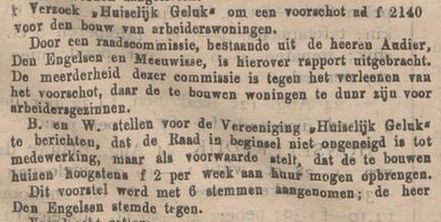
Westlandsche courant, 27 Aug 1910

De Maasbode, 08 Jun 1911
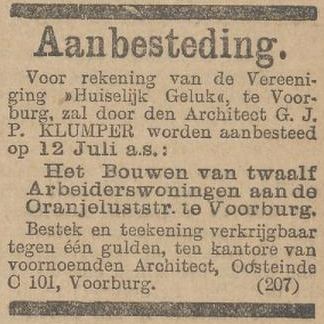
Het nieuws van den dag, 28Jun 1911

Haagsche courant, 19 Nov 1912
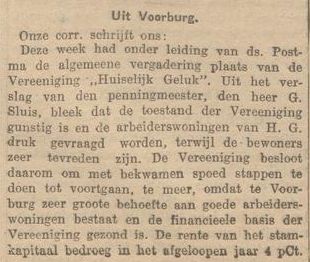
Het vaderland, 25 Mar 1913

The first stone laying, photo includes Djurre Gosse Postma and his 2 sons Dees and George Postma.
Source: Voorburg in oude ansichten
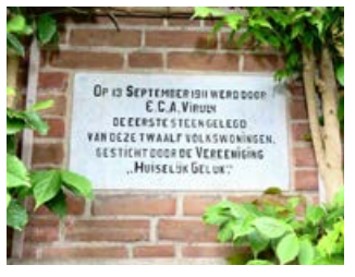
The first stone laying (13 Sep 1911) was done by Miss Elisabeth Cornelia Amalia Viruly.
1913
Death
28 Dec 1913
Voorburg
28 Dec 1913
Voorburg
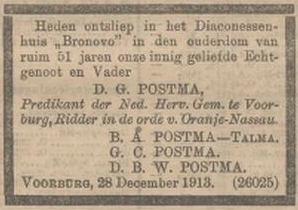
Het vaderland 29 Dec 1913
1913
Funeral
31 Dec 1913
Voorburg
31 Dec 1913
Voorburg

Het Vaderland, 29 Dec 1913

De courant, 31 Dec 1913
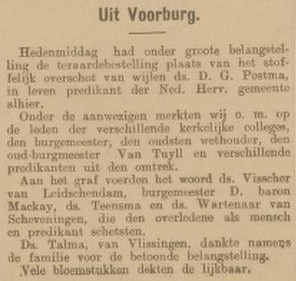
De nieuwe courant, 31 Dec 1913

De Standaard, 02 Jan 1914

Het Vaderland, 31 Dec 1913
1914
June 1914
Voorburg
Voorburg

Het vaderland, 17 Jun 1914
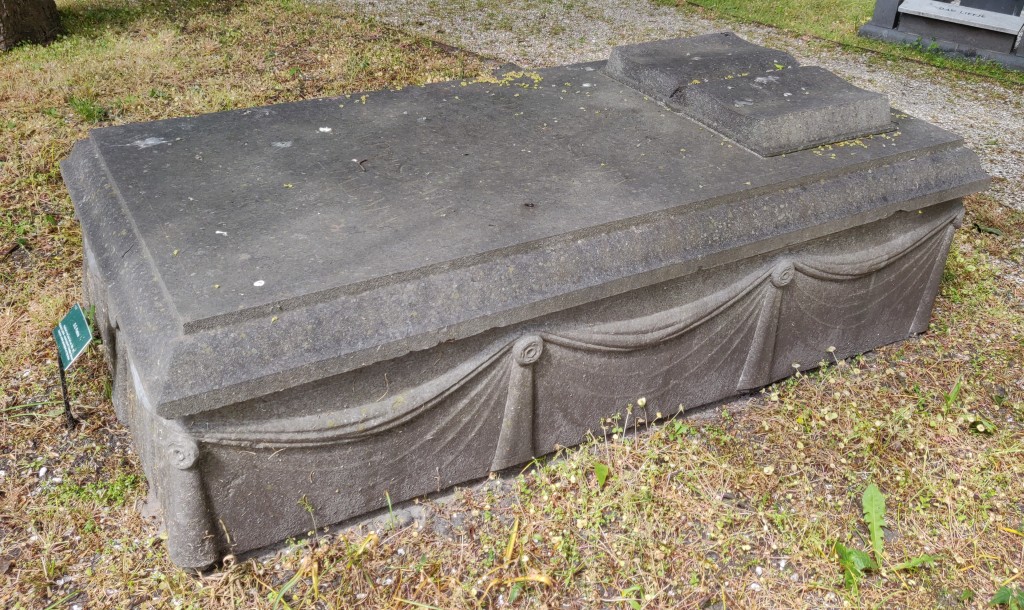
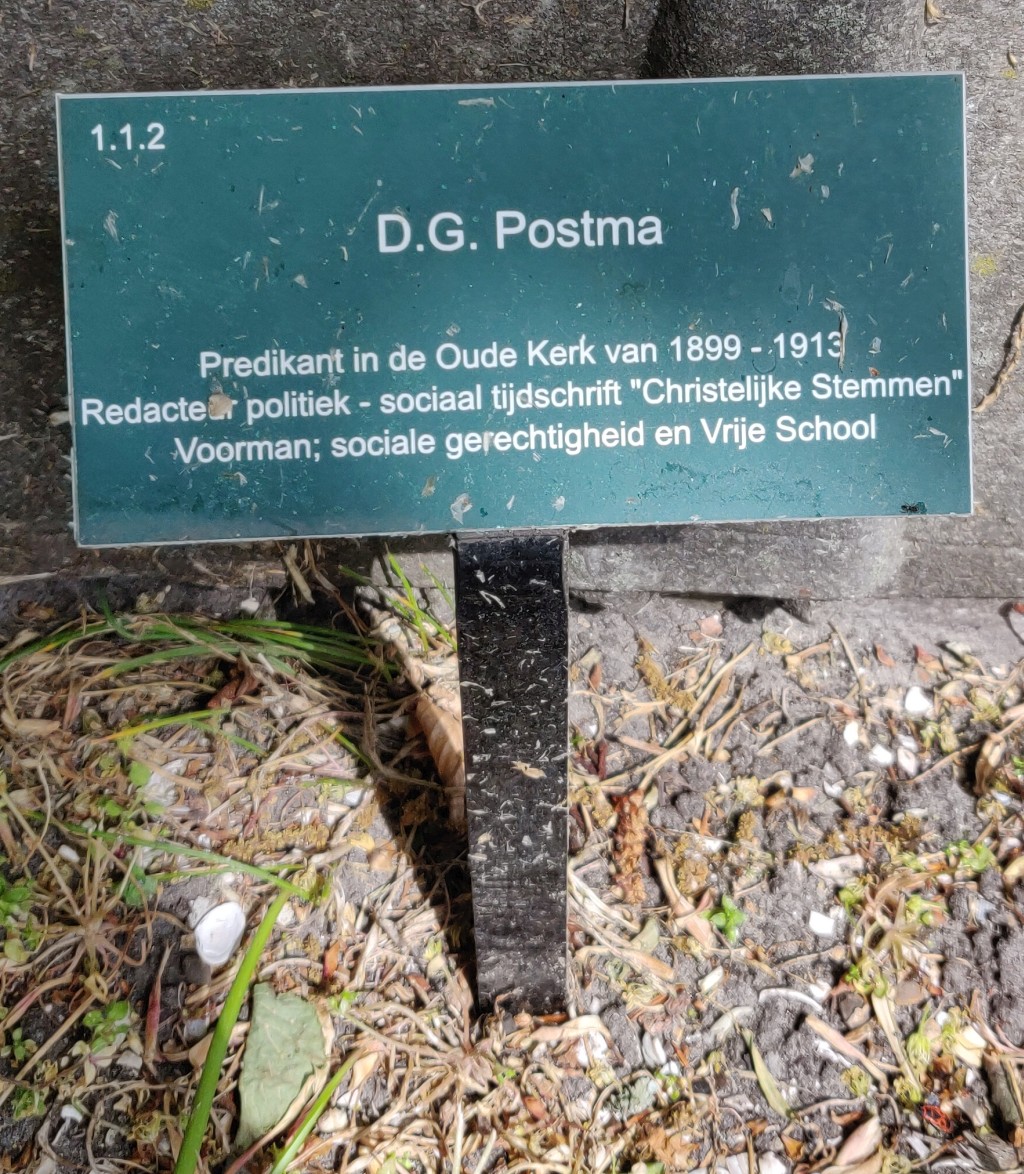

Algemene Begraafplaats
Parkweg 105, Voorburg
Parkweg 105, Voorburg
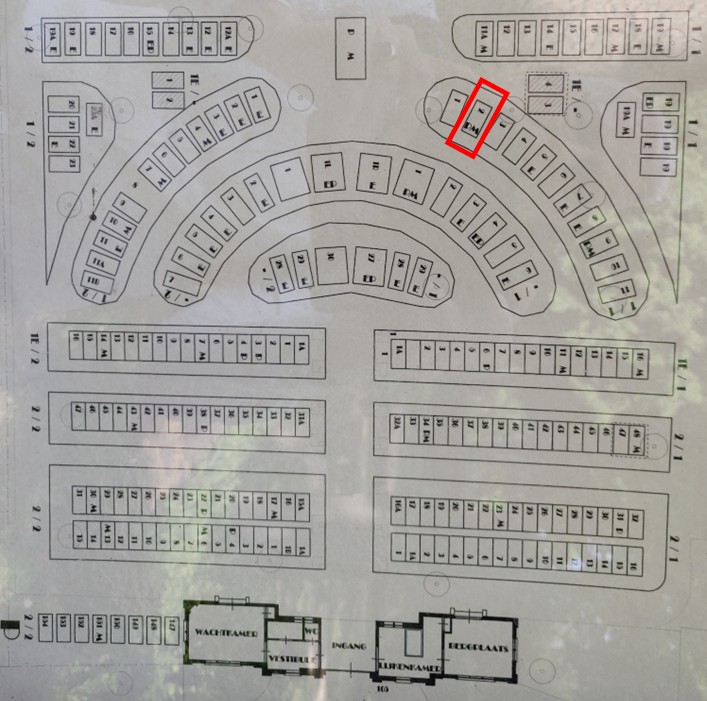
1914
Aug 1914
Voorburg
Voorburg

Het vaderland, 18 Aug 1914

Kerk Voorburg
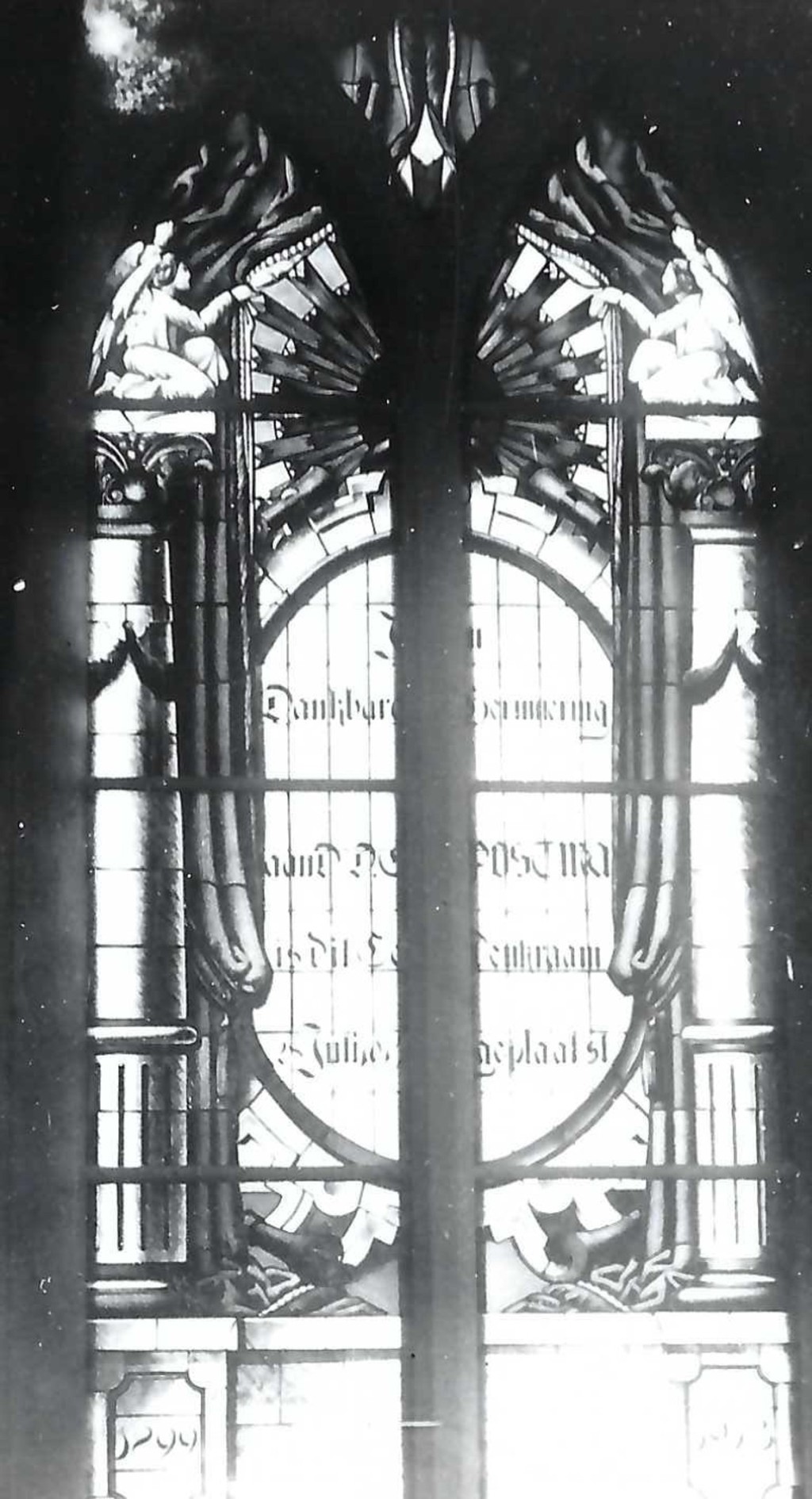
Original memorial window

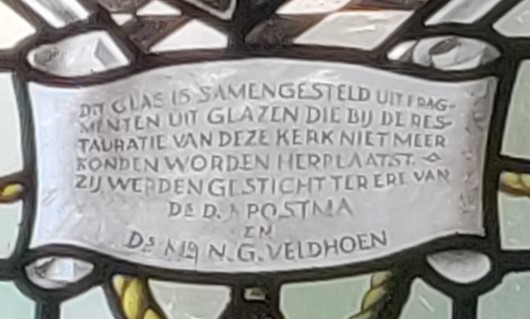
After a church restoration, 2 memorial windows were combined. The current window is composed of parts of memorial windows of D. G. Postma (1913) and N.G. Veldhoen (1934).
In the midst of all kinds of colored glass, this window shows a rooster (vigilance) and an owl (wisdom) and in the middle an open bible with the arrows of the directions of a compass.
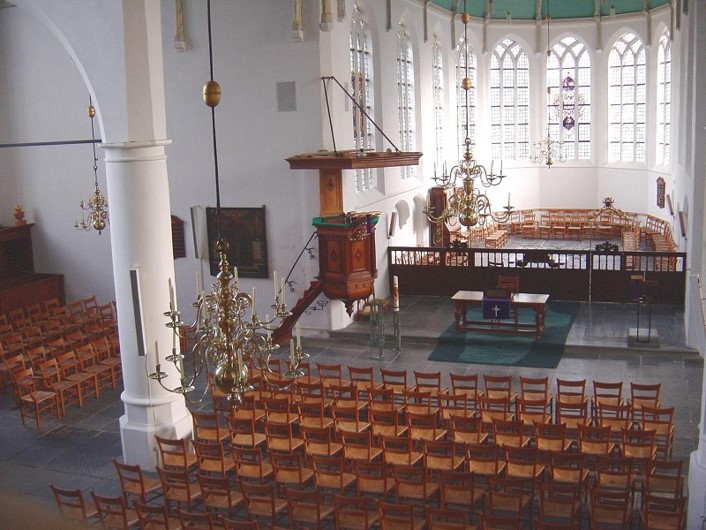
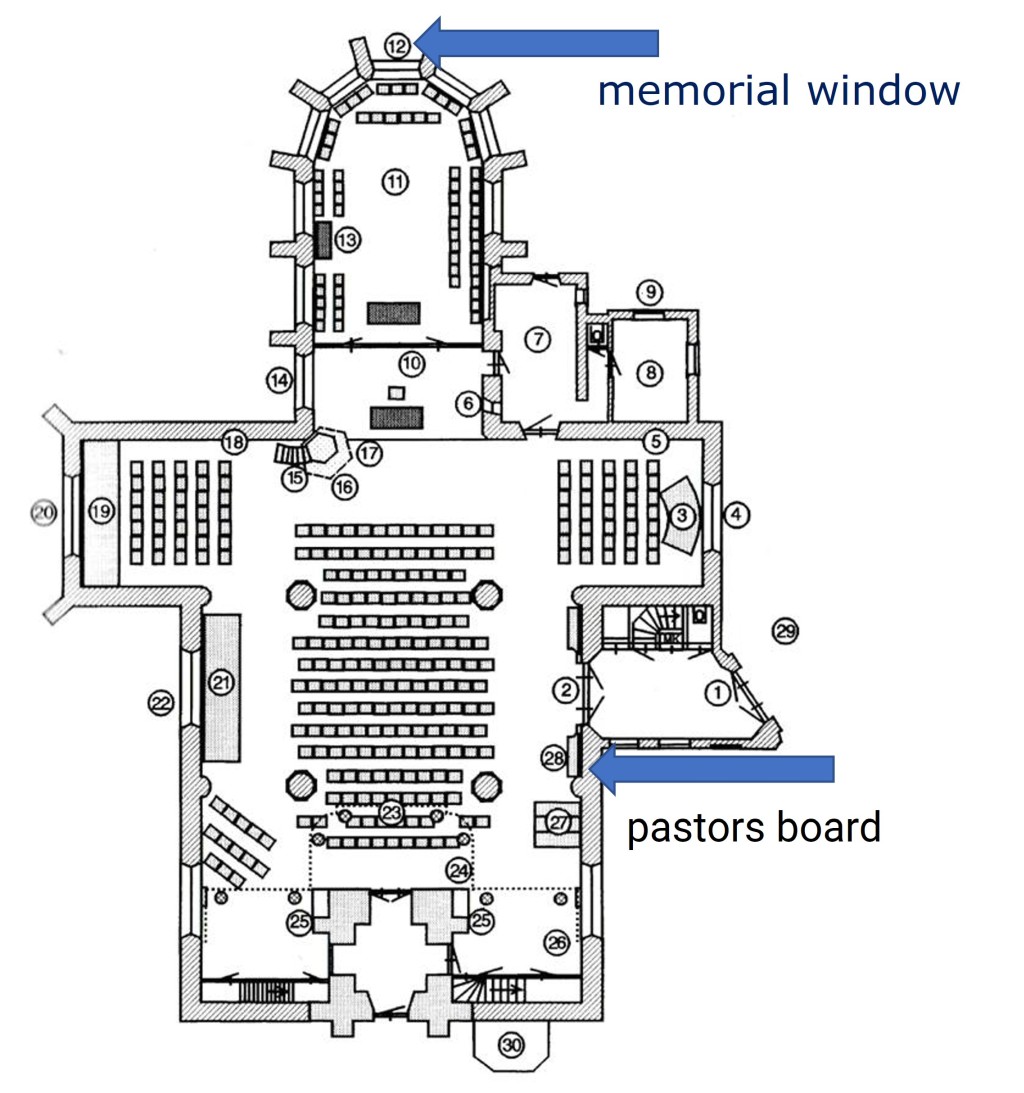
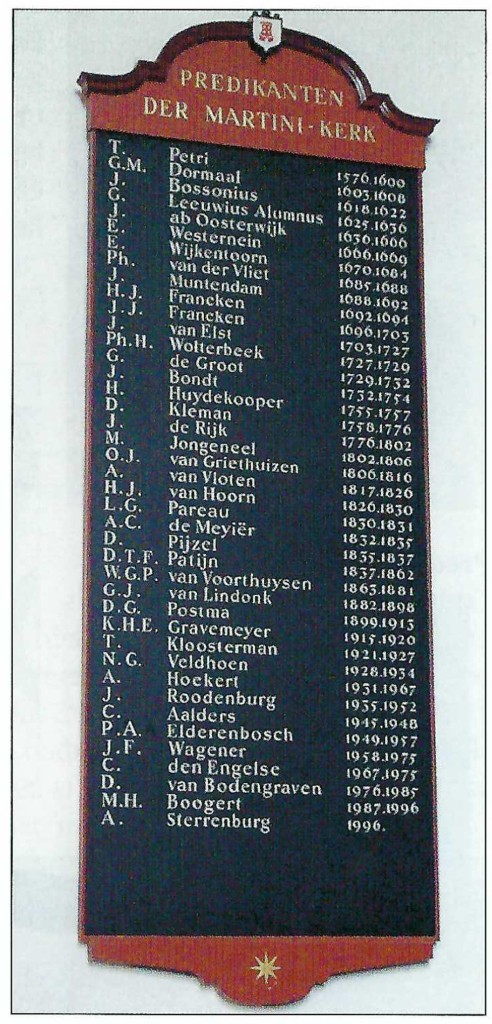
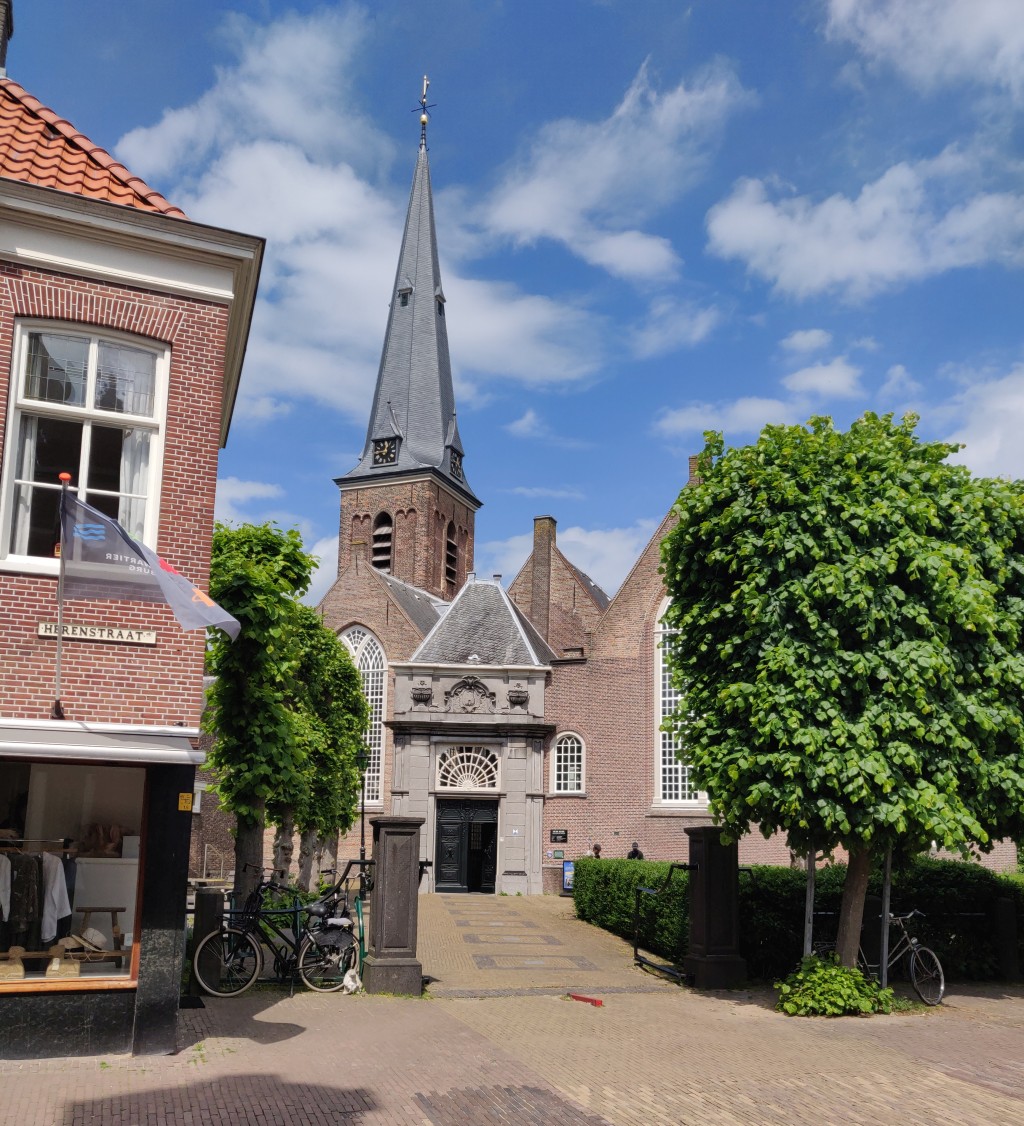
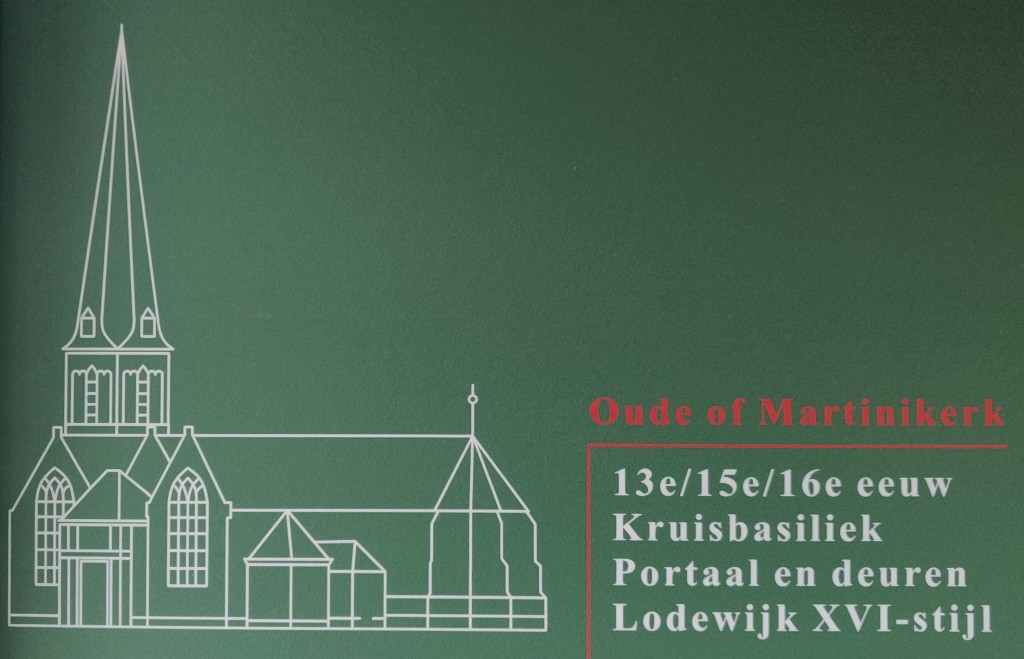
Herenstraat 77, Voorburg



